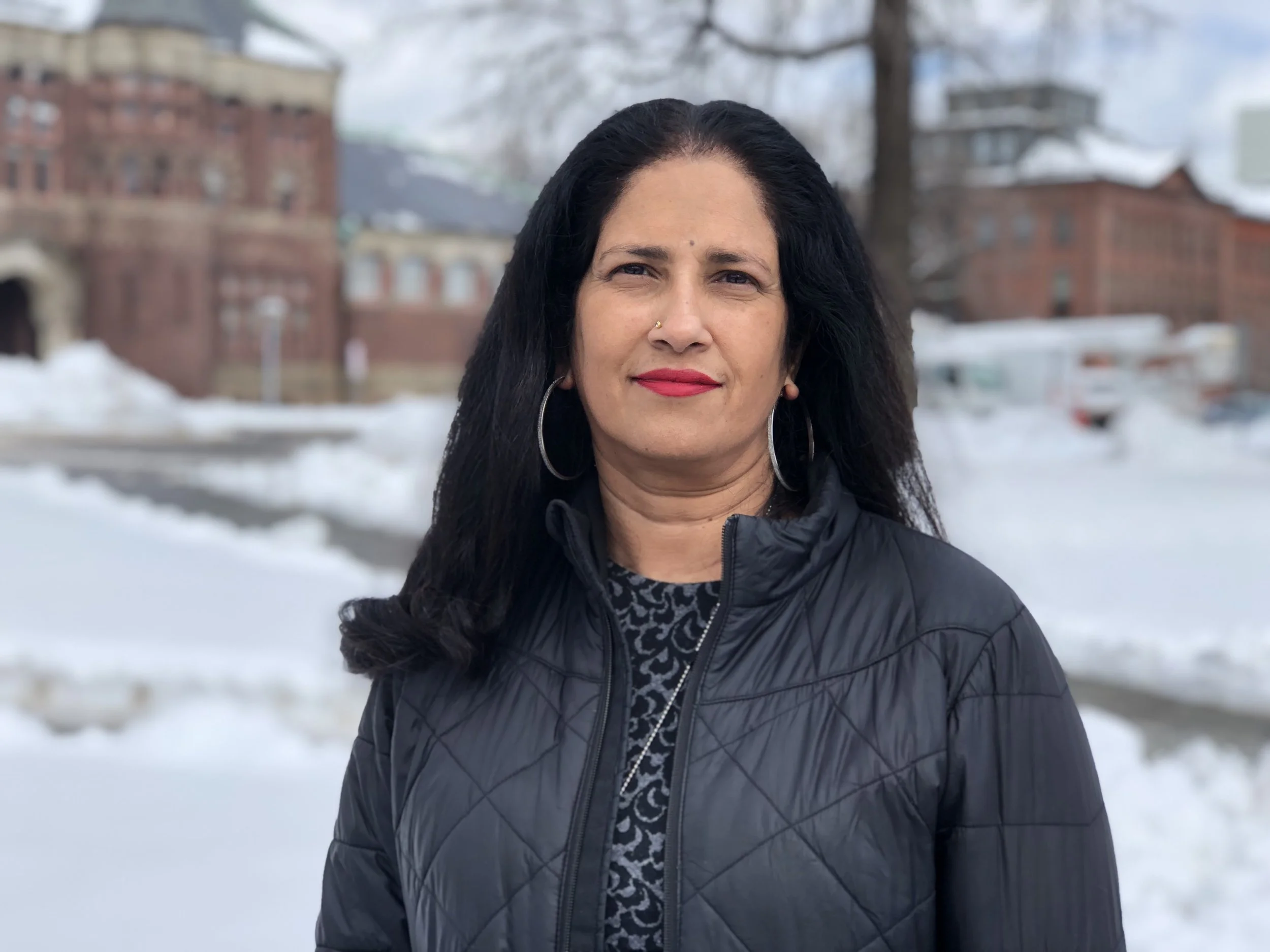The Regional Funders Backing Early Childhood Learning—With a Twist
/photo: Sergey Novikov/shutterstock
Early childhood learning is becoming more popular among funders as research emerges pointing to the importance of the early years of a child’s life in overall development and long-term success. While the field is growing in prominence, most money centers on programs that focus on school-aged children in a handful of urban areas.
A coalition of regional funders in Minnesota that has promoted early childhood learning since the early 2000s is breaking that mold in some important ways. It also well predates the recent surge of philanthropic interest in this area.
The foundations’ commitment to early childhood education started back in 2003 with a gift from the McKnight Foundation. Since then, McKnight and the local foundations jointly raised $15.8 million to support collaborative early care and education in Minnesota.
The six foundations’ ties to McKnight go back further than that. In 1986, the McKnight Foundation started six foundations—the Initiative Foundation, the Northland Foundation, the Northwest Minnesota Foundation, the Southern Minnesota Initiative Foundation, the Southwest Initiative Foundation and West Central Initiative—to serve the regions of Minnesota outside the Twin Cities metro area.
The Minnesota Initiative Foundations, as they’re collectively called, are independent from McKnight and each other. Stakeholders in each region of the state determine the priorities of their local foundation.
In their focus on Greater Minnesota rather than an urban center, the foundations already differ from many funders working on early childhood education, but that’s not the only distinction. In their most recent work, many of the initiative foundations emphasize access to high-quality childcare.
Funders often overlook access to childcare, even those that focus on early childhood. In Minnesota, the regional foundations don’t have that luxury. Greater Minnesota, like many other places in the U.S., is in the midst of a childcare crisis.
From 2006 to 2015, the state lost about a quarter of its at-home childcare facilities. That translates into vanished spots for about 36,500 children. New and expanded childcare centers made up about two-thirds of that loss, but the centers are concentrated in the Twin Cities and surrounding suburbs.
In Greater Minnesota, counties didn’t make up the difference. In the last decade, the regions outside of the Twin Cities metro area lost about 15,000 spaces in childcare facilities, leaving many families in a bind.
“Childcare issues are dramatically different between urban and rural settings. At this point in rural Minnesota, the problem is availability of any childcare, not choices about quality ratings and costs,” said Diana Anderson, CEO of the Southwest Initiative Foundation. “In our communities, it’s not uncommon for parents to add their names to wait lists before learning they’re pregnant, to drive 30 miles each way to get to their provider, or even split their children among multiple providers.”
Anderson’s foundation put up nearly $500,000 as part of a two-year commitment to find regional solutions.
Low-income and single-parent families are hit the hardest by the shortage. Low-income parents are less likely to have paid parental or sick leave. For single parents, the loss of childcare can mean the loss of a job.
That reflects the trend nationally, where childcare is more widely available, but costly. In 2015, the Economic Policy Institute, a progressive-leaning think tank, found that in 33 states and the District of Columbia, infant care costs more on average than in-state tuition at a public university.
Affordable childcare puts struggling families on surer financial footing. While access to childcare seems like a no-brainer for funders focused either on early childhood education or economic opportunity, few have gotten on board.
Related:
This Funder Sees Child Care as a Key to Bolstering Economic Justice for Women
Childcare Hasn’t Gained Much Traction with Funders. Who's Trying to Change That?
The Ms. Foundation is one of the few national funders working to promote access to affordable childcare. Part of the foundation’s work is to get more funders involved, with the hope that more philanthropists focusing on early childhood education, like the Minnesota Initiative Foundations, will add childcare to their agendas.
“In the early childhood education community, the focus is primarily on the children and the optimal growth of children, and it doesn’t always take into account the conditions and situations that parents are in,” said Aleyamma Mathew, director of the women's economic justice program at the Ms. Foundation. “A child’s life is not just governed by their own biological evolution and learning, but it also matters and is connected to the situations their parents are in.”
The Urban-Rural Divide
The Minnesota Initiative Foundations also deviate from the norm of early education funders in their focus on rural, rather than urban areas.
As early childhood learning gains traction, several urban hubs have emerged as magnets for early education funding. There are some national initiatives pushing early childhood education, but most are focused on a single city.
Chicago is the most prominent of these hubs. Ounce of Prevention, the nonprofit that founded and continues to partner with Educare early learning facilities, is based in Chicago. The nonprofit has attracted millions in support from The Buffett Early Childhood Fund, the W.K. Kellogg Foundation and the Gates Foundation.
The J.B. and M.K. Pritzker Family Foundation, one of the few funders supporting early childhood education on a national level, is based in Chicago and has focused many of its efforts there. J.B. Pritzker, one of the heirs to the Hyatt hotel chain, has become an activist mega-donor in the space.
Related: A New National Collaboration on Early Childhood, Backed by Pritzker Wealth
There’s also a push for early education in Oakland, led by the Kenneth Rainin Foundation. The foundation put up $3 million last year to get students in the Oakland Unified School District reading at grade level by third grade by working with them starting in kindergarten and first grade.
In Detroit, the Kresge Foundation, based in neighboring Troy, Michigan, recently partnered with the W.K. Kellogg Foundation to put $50 million toward a 10-year plan to nurture early childhood learning in the city. Similarly, the William Penn Foundation supports early learning in Philadelphia, the Helios Education Foundation funds the work in Arizona, and so on.
A glance at education media coverage helps explain this discrepancy. Publications like Education Week spend more time reporting the state of urban schools than rural ones. Additionally, many of the philanthropists mentioned above are working in the cities where they’re based, focusing on the need in their backyards before they look elsewhere. The lack of grant money flowing to rural areas has been a recurrent topic within philanthropy for years. We've reported often on the disparity at Inside Philanthropy, spotlighting this problem in regard to specific issues, like healthcare, and in particular regions, like the South. Education in rural areas is just one more area that's been shortchanged by grantmakers.
But this shouldn’t be interpreted as a dearth of need. Students who grow up in urban areas are 10 to 15 percent more likely to go to college than their rural counterparts, according to the Harvard Political Review. The difference is chalked up to funding, transportation, technology and teacher shortage.
The Southern Minnesota Initiative Foundation pegged early childhood learning as an area where it could make a difference. The foundation spends $1.6 million annually on local efforts to sustain strong early childhood programs. The work is accomplished through grants, community coalition support, strategic donor partnerships, educational seminars and workshops, and regional and statewide networking.
“We know how important it is during the first five years of brain development in a child’s life, so we try to help caregivers, educators, families and children get the resources they need to make sure all children have equal opportunities to be school and life-ready,” said Rae Jean Hansen, the foundation’s early childhood vice president.
The Minnesota Initiative Foundations may not be the first funders that come to mind when you think early childhood learning. However, as the field grows, its advocates would do well to remember their work and its inclusion of issues and people often overlooked by philanthropy.
Related:







































